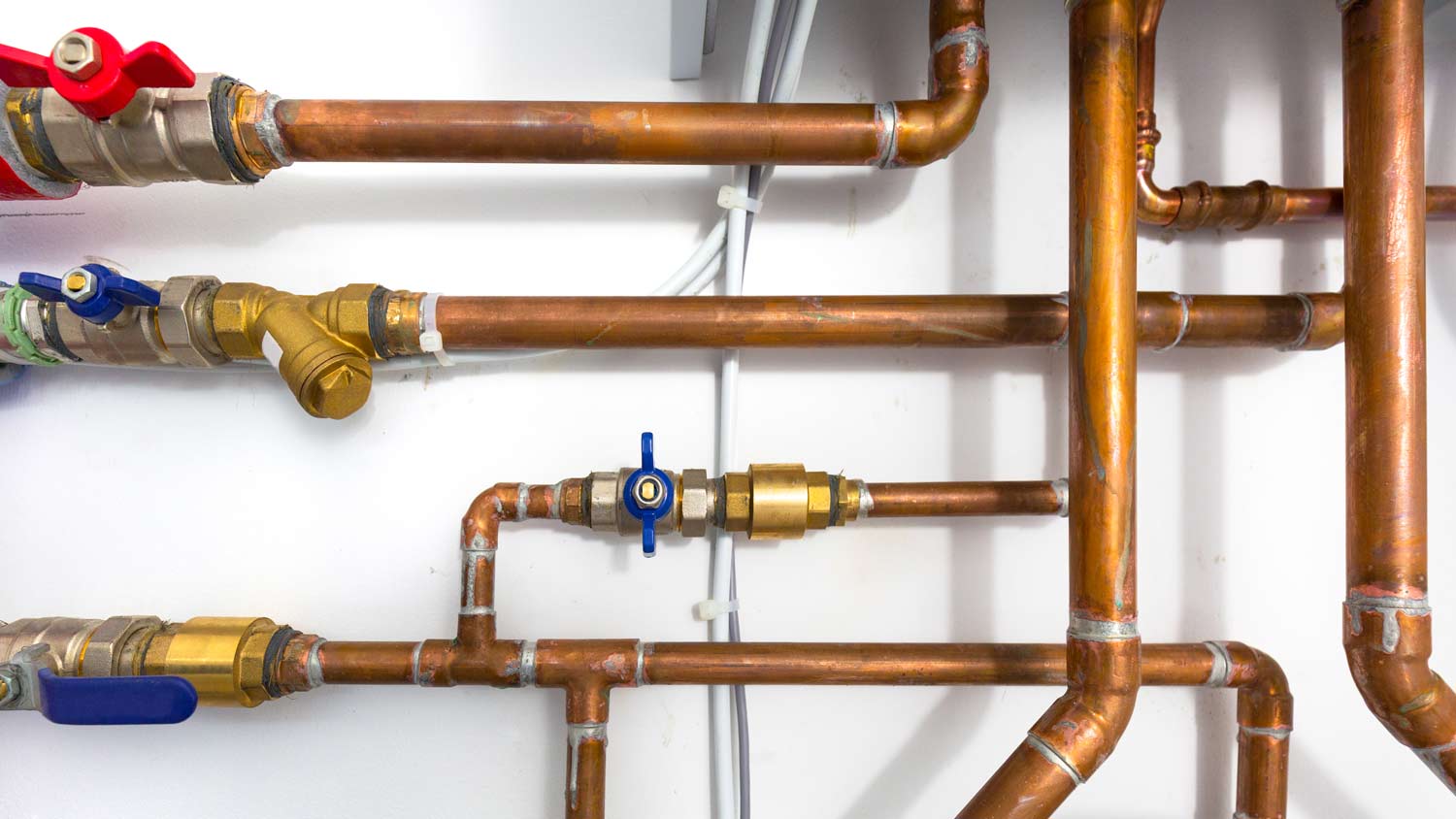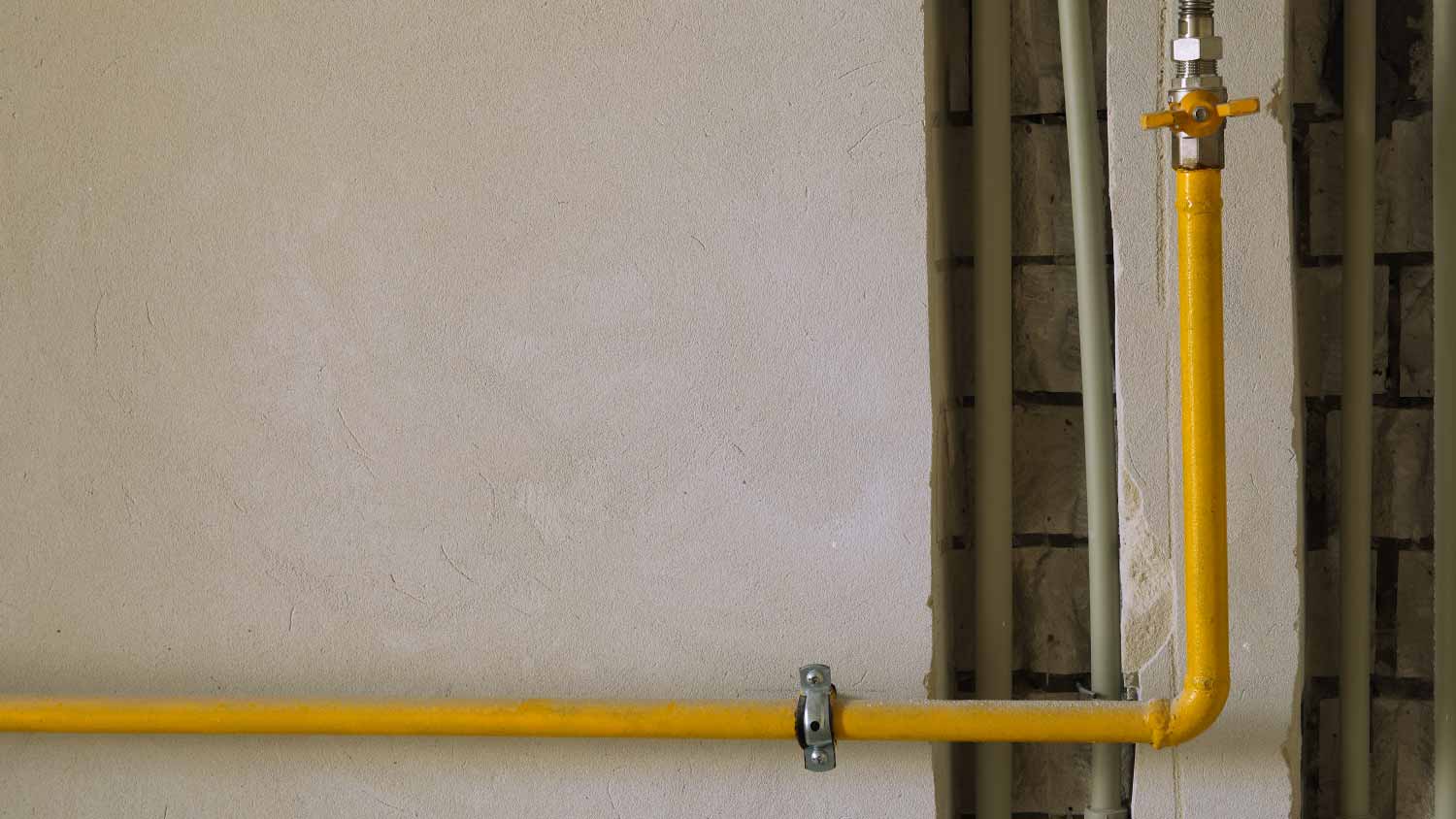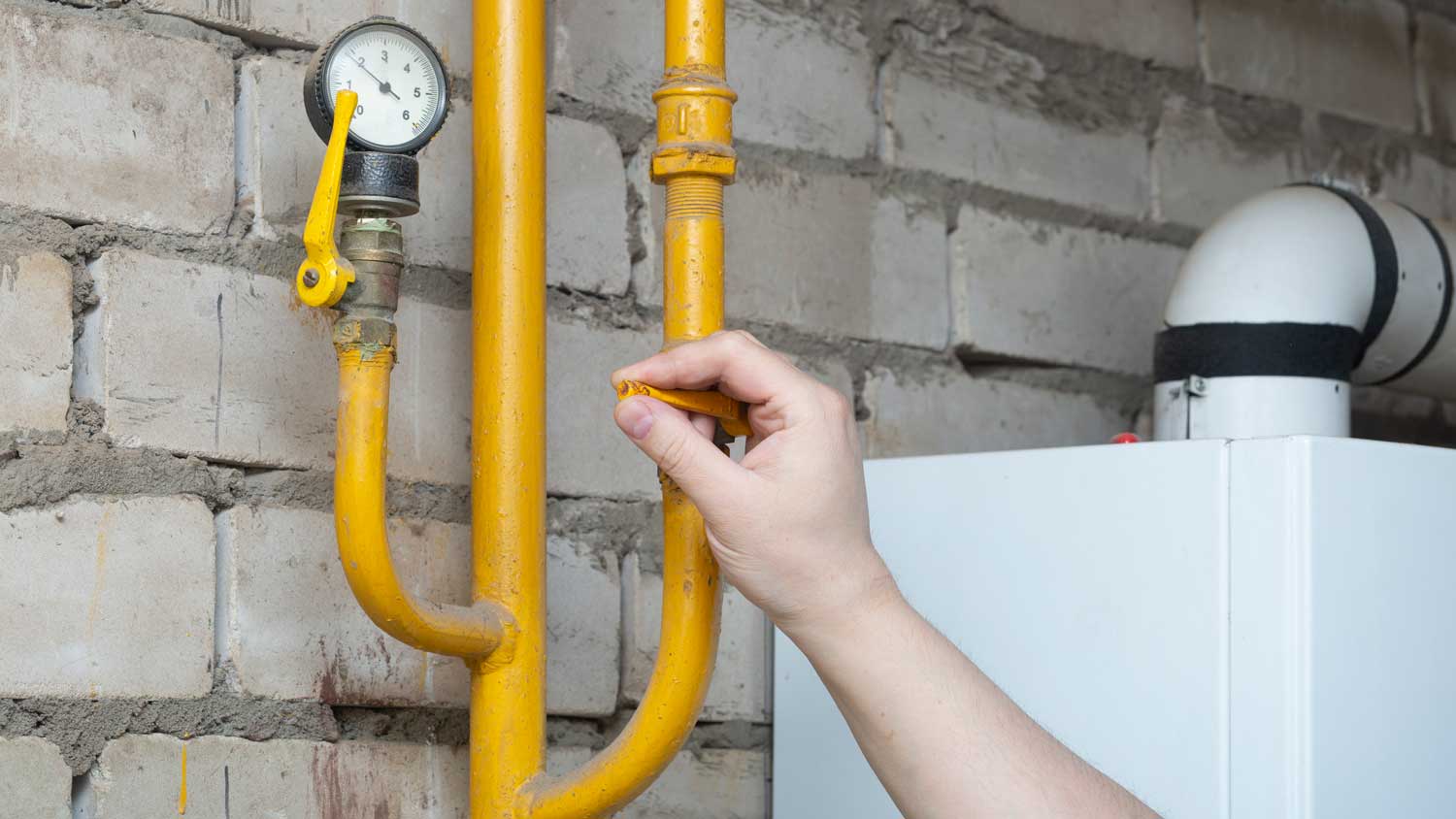How to Check a Gas Line for Leaks
When it comes to gas leaks, the nose knows
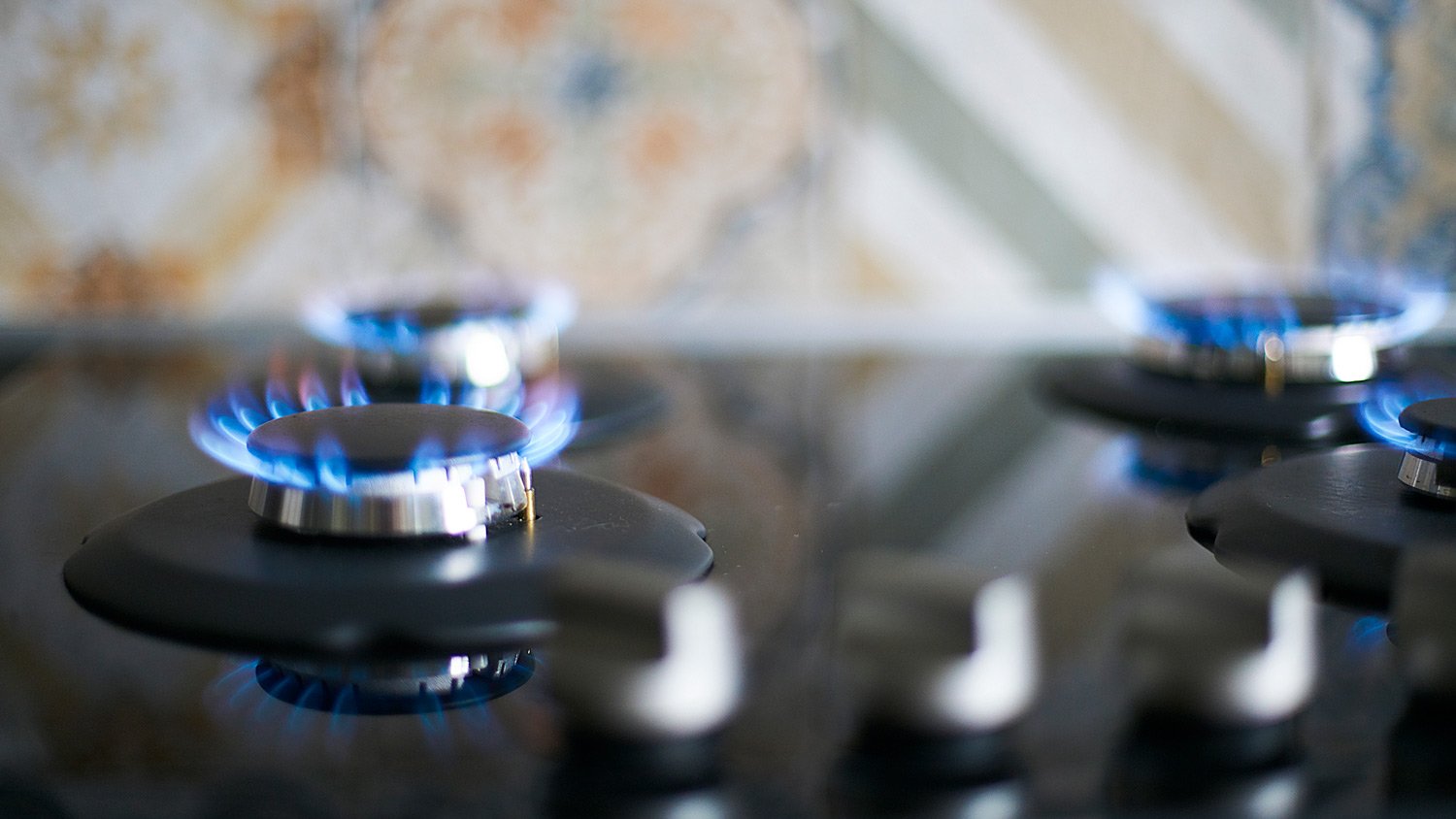

A gas line leak in your home can lead to fire hazards, health risks, and explosions if you don’t deal with it right away. Fortunately, there’s good news—while propane and natural gas leaks can be difficult to detect, you can protect your home and family by knowing the signs. This guide will walk you through how to check a gas line for leaks, understand the risks, and prevent and address problems.
What Causes Gas Leaks in Homes?
Gas leaks are often the result of wear, poor installation, or external damage to gas lines. Something as simple as leaving your gas stove on without a flame can cause gas to build up. Knowing the causes of home gas leaks can help you stay ahead of potential problems. Let’s take a closer look:
Loose or damaged gas connections: Gas-powered appliances, from stoves to water heaters, rely on secure fittings to function safely. If these connections loosen or deteriorate over time, gas can seep out.
Worn-out seals and fittings: Like any component exposed to constant pressure and use, robber seals and metal fittings degrade over time. Small cracks or weak points can develop, and gas can escape.
Corroded or damaged gas lines: Underground gas lines can crack due to shifting soil, while exposed pipes may corrode due to moisture, weather, or accidental impacts.
Improper installation or repairs: Gas lines need precise care. Poorly installed lines or DIY fixes can lead to gas line leaks. A tiny misalignment in a fitting can result in a slow but persistent gas leak.
Environmental factors: Gas lines aren’t immune to natural forces. Heavy rains, freezing temperatures, and nearby excavation can cause the ground to shift, stressing or damaging buried pipes.
How to Identify a Gas Leak
Since natural gas and propane are invisible and odorless on their own, utility companies add a sulfur-like scent to make leaks easier to detect. However, smell alone isn’t always a reliable warning. Learn and look for these signs to spot a gas leak:
Rotten-egg smell: This is the most obvious sign of a gas leak, thanks to chemical additives. If you notice this unpleasant odor, call a pro right away. If your gas range or oven smells like gas but other areas of your home don’t, take a moment to figure out if you can tell what’s causing the odor.
Hissing or whistling sounds: When gas moves through small openings like cracks in pipes, it makes a faint but distinct hissing noise. You might hear this near pipes, appliances, or gas meters.
Dead or dying plants: Underground gas leaks can displace oxygen in the soil, slowly suffocating plant roots. If you notice patches of struggling or dead grass or plants, there’s a chance it could be a sign of an underground gas leak. Call the utility company or a gas line contractor right away.
Bubbling in water: Outdoor gas leaks can cause bubbling in standing water near gas lines as it rises to the surface. If you see bubbles in water that’s above a known gas line, call for a gas plumber to assess the situation.
Physical symptoms: Slow gas leaks can cause people to feel dizzy, nauseated, fatigued, or headachy. If you or other family members experience these symptoms after spending extended time indoors, a gas leak could be the culprit. Open the windows, leave the house, and call a gas line plumber right away.
Higher gas bills: If your monthly gas bill suddenly jumps without you knowingly using more, a hidden leak may be to blame. Call your gas provider and schedule an inspection.
If you notice any of these signs, take the fastest, safest route and call a natural gas plumber near you right away.
How Much Does It Cost to Check Gas Lines for Leaks?
You can perform a simple gas line leak check with items you have at home, like dish soap and water for a soapy water test (described below). Reusable, handheld gas detectors for home use cost between $10 and $90.
The cost of gas line repairs depends on the problem and who you hire for the job. Repairs average about $600 but range between $120 and $2,000, while inspections start at $150. Still, your safety and peace of mind are worth it. If the issue is with the public utility, it won’t cost you anything to diagnose and repair it.
How to Check for Gas Line Leaks
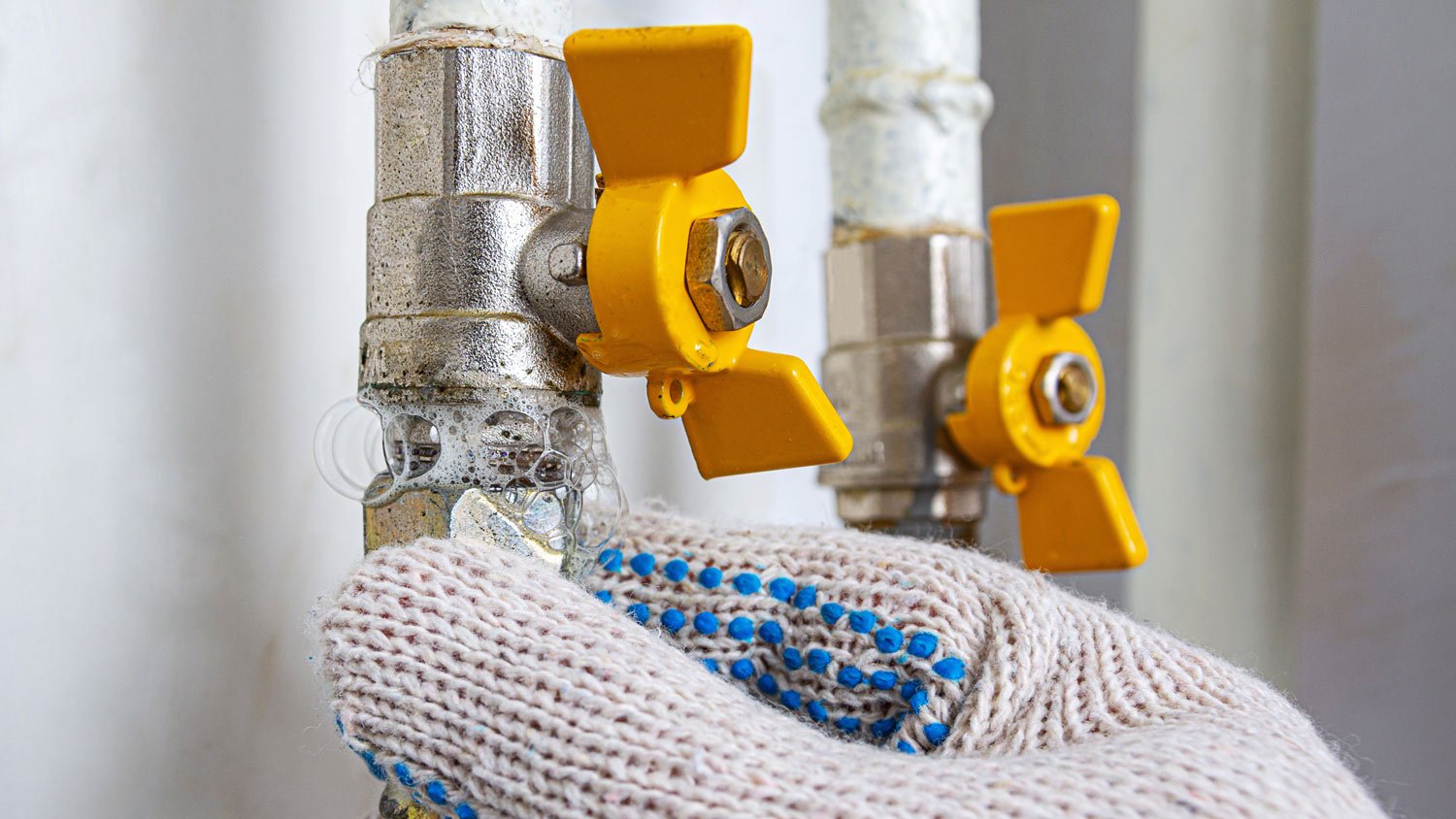
If you suspect a gas leak but aren’t sure, you can perform a few simple tests before calling a pro. However, if you smell gas, feel dizzy or lightheaded, hear a loud hissing noise, or suspect a major leak, do not try to determine where it’s coming from or test the line for leaks. Evacuate your home immediately and call your gas company or emergency services right away.
Use the Soapy Water Test
Mix a little dish soap with water and apply it to gas connections or areas you suspect may have a gas leak. If new bubbles form, you’ve found the source of the leak. Call a licensed pro to repair the gas line or connection.
Check Your Gas Meter
Turn off all gas appliances and check your gas meter. If the dial continues to move, there’s likely a leak somewhere in your system. In this case, your best course of action is to call your gas company or a gas plumber and stay out of the house until they resolve the issue.
Use a Gas Leak Detector
These handheld devices can detect small leaks that might not be obvious via smell or sound alone. Always follow the manufacturer’s directions. Turn on the detector (most require batteries) and move it near areas where you suspect a gas leak. If the alarm goes off, you have a leak. Call your gas company or a gas line repair service to perform the repair.
What to Do When You Suspect a Gas Line Leak
Homeowners should never attempt gas line repairs. That said, here are steps you can take in an emergency or if you smell gas:
Turn off the gas supply: Know where your home’s main shut-off valve is (usually near the gas meter) before there’s an emergency. That way, if you suspect a gas leak, you can locate the valve and turn it off. This will stop the flow of gas and reduce the immediate risk.
Ventilate the area: Open windows and doors to allow fresh air to disperse some of the gas buildup.
Avoid creating sparks or flames: A single spark can ignite leaking gas. Do not turn on lights or flip electrical switches, use electronics (including cell phones), or use a lighter or matches for any reason.
Evacuate your home: It’s safest to leave your home and call emergency services or a gas plumber.
Call a licensed professional: Only a qualified plumber or licensed gas technician should repair or replace gas lines.
Tips to Prevent Gas Line Leaks
Prevention is the key to avoiding gas leaks altogether. The best way to reduce the risk of gas line leaks in your home is by performing regular maintenance. Here are some top safety tips:
Schedule annual gas line inspections: Have a licensed technician check for gas leaks, inspect appliance connections, and perform a gas pressure test inspection to assess the condition of your gas lines every year.
Replace aging appliances: Older gas-powered devices may have worn-out valves and seals. If an appliance is over 15 years old, consider replacing it or its valves and seals.
Install gas leak detectors: These devices work like smoke detectors but alert you to gas leaks, offering an added layer of protection for homes.
Check home gas connections: Periodically check the hoses and fittings of your gas appliances for wear, corrosion, or loose parts. Call a pro if you see anything out of the ordinary.
Be cautious with DIY repairs: If you’re digging outdoors, call your gas company first to check for underground lines. Never modify gas lines without advice from a pro.
DIY vs. Hiring a Pro
While some homeowners feel comfortable performing basic leak prevention and detection, gas line repairs require a fast response and professional expertise.
The cost to hire a professional plumber or gas technician for a minor repair ranges from $150 to $700. Full gas line replacements cost cost $1,400 or more, depending on their complexity. Your gas line plumber can give you an estimate for your specific job.
A professional should always do gas hookups because of the serious dangers and risks involved. Signs you might need gas plumbing repairs are rust, damaged connections, or a gas smell. If you smell gas, turn off your appliance immediately and call a professional to inspect it.
Frequently Asked Questions
Common signs of gas line leaks include a rotten egg smell, hissing sounds, dead plants around the area of the leak, and unexplained physical symptoms like dizziness and nausea. If you notice any of these signs, act immediately. Shut off the gas supply to your home and call a pro to assess the situation.
No, homeowners should never attempt to fix a gas leak themselves. Gas leaks pose serious health and fire hazards. Exposure to leaking gas can make you sick, and accumulated gas can ignite and explode. So always take leaks seriously and seek the help of a pro right away. While you may be able to detect a gas leak, always call a licensed professional to handle repairs and replacements.



